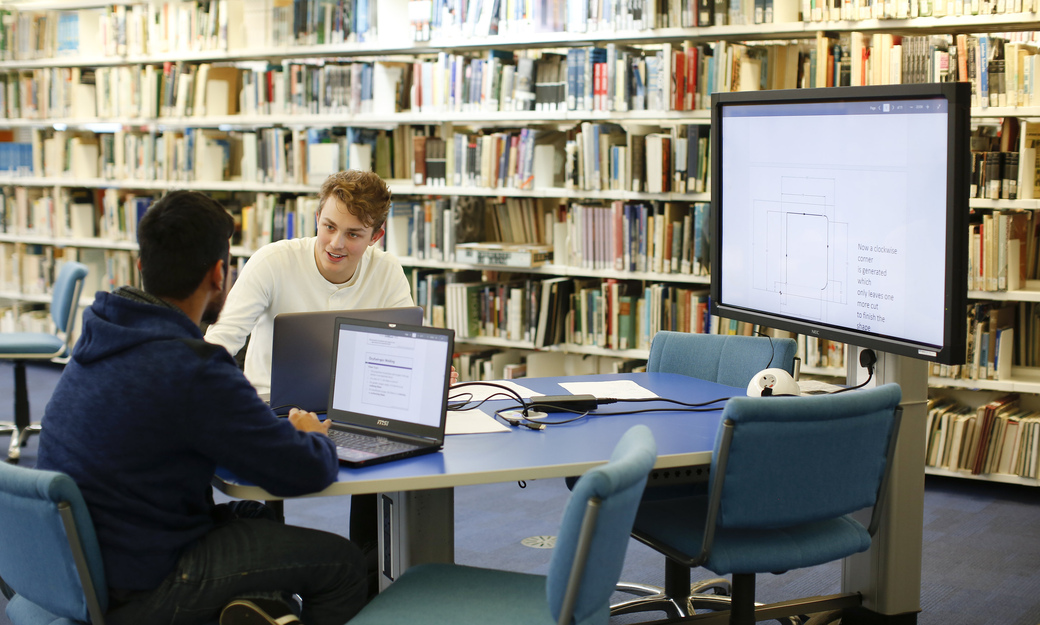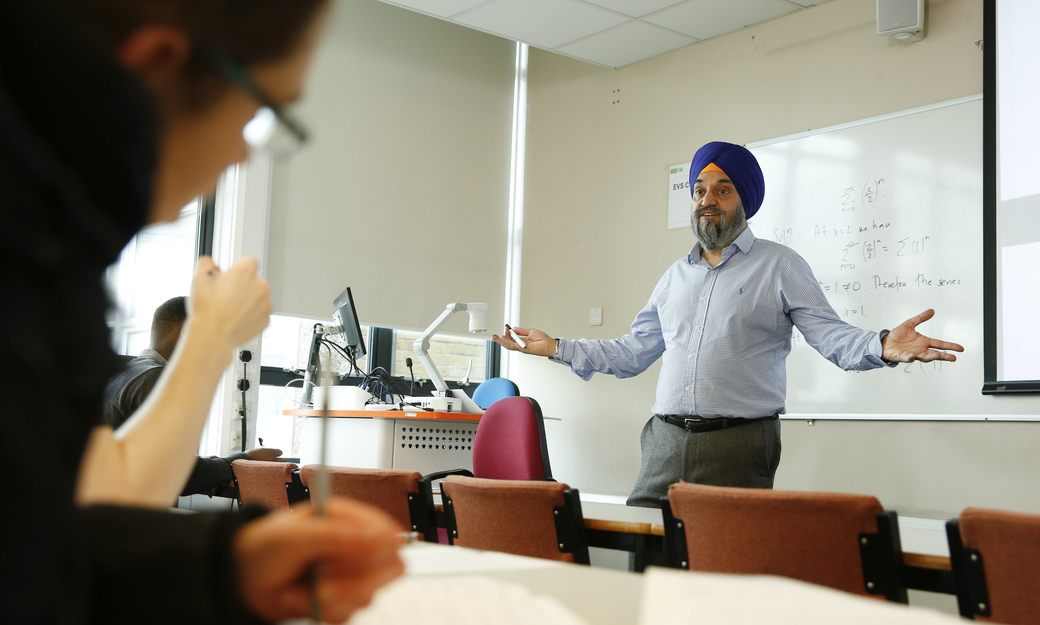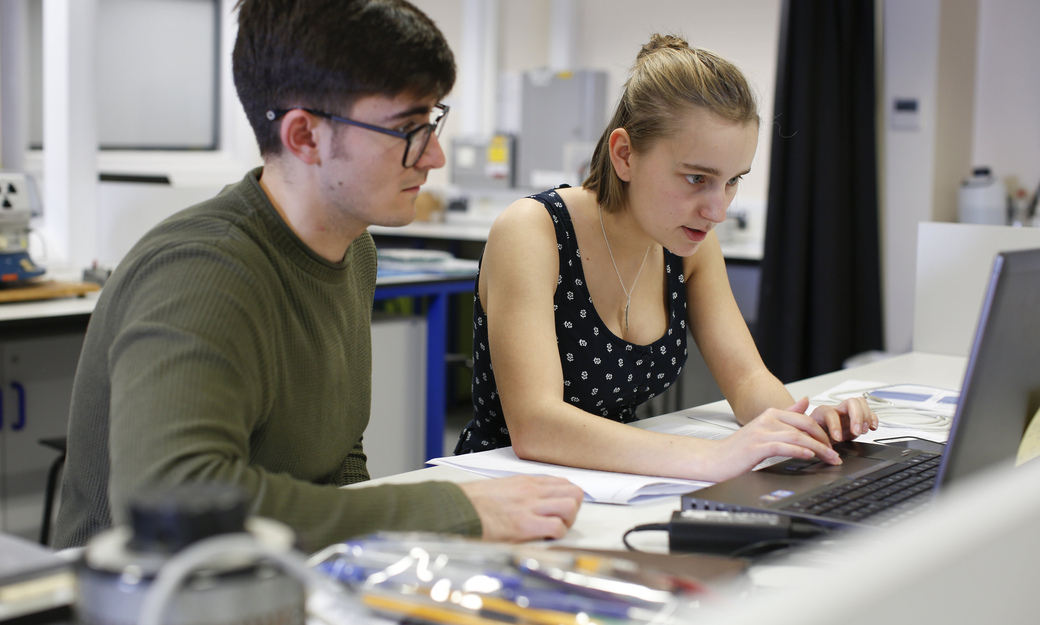Mathematics and Financial Mathematics
Hello Everyone!
Welcome to the Mathematics and Financial Mathematics resources page.
Here you will find out exactly what our academics are looking for in their students, including skills they look out for, some of the topics they want you to know, recommended reading and useful places to boost your knowledge.
So without further ado let's get started!
Skills we are looking for
- Problem solving skills and quantitative reasoning
- Critical thinking
- Able to construct logical arguments
- Be able to work independently
- Effective time management
- Be able to ask questions and contribute to discussions
- Experience using and programming computers

Topics to explore before you start
- Be proficient at transposing and manipulating algebraic equations
- Be proficient using trigonometry, logarithms, exponentials, indices and factorization
- Be able to set up and solve equations
- Be proficient in plotting and interpreting graphs
- Be able to use and manipulate functions
Mathematics Taster Lecture: Is it possible to beat the stock market?
In finance, the Efficient Market Hypothesis (EMH) suggests that it is impossible to “beat the market” consistently. In this taster lecture, we will explore the implications of this hypothesis and the evidence for and against it.

Recommended reading to prepare for university
Some recommended textbooks to read either before or during your degree:
- Alcock, L. (2012) How to study for a mathematics degree, Oxford, Oxford University Press. ISBN:0199661324
(Contains lots of good advice)
- Siklos, S. (2020) Advanced Problems in Mathematics: Preparing for University, London, Saint Philip Street Press. ISBN:1013293827
- Houston, K. (2009) How to think like a mathematician: A companion to undergraduate mathematics, Cambridge, Cambridge University Press. ISBN:052171978X
(Contains maths problems as well as good advice)
- Singh, S. (2002) Fermat's last theorem: the story of a riddle that confounded the world's greatest minds for 358 years, London, Fourth Estate Ltd. ISBN:9781841157917.
(A book that makes the proof of Fermat’s Last Theorem a thrilling read and shows where a passion for mathematics can lead)
- Tao, T. (2006) Solving mathematical problems: A personal perspective, Oxford, Oxford University Press. ISBN:0199205604.
Key textbooks used in first-year maths at University of Hertfordshire:
- Singh, K. (2003) Engineering mathematics through applications, London, Palgrave Macmillan. ISBN:0333922247.
- Singh, K. (2013) Linear algebra: step by step, Oxford, Oxford University Press. ISBN:9780199654444.
Reading specifically for Financial Mathematics:
- Garrett, S. (2013) An introduction to the mathematics of finance: a deterministic approach, Oxford, Butterworth-Heinemann. ISBN:978-0080982403.

Programmes to know
- Microsoft Excel is a useful software for your degree in maths or financial maths. Free tutorials are available online.
- Python is a common computing language used in mathematics.
LaTeX is a common editor used in maths to create professional-looking documents.
Learn how to use LaTeX in 30 minutes on the Overleaf website
Websites our academics recommend
For the first year maths textbook
Practise quiz questions on a range of mathematical topics
MATHSWORLDUK exists to excite and engage everyone, especially the young, with the fascination and power of Mathematics and to foster awareness of the central role it has played and will increasingly continue to play in the development of modern civilization, in the way we think, and in our understanding and control of the universe around us.
Professional bodies to research
The Institute of Mathematics and its Applications:
The professional and learned society for qualified and practising mathematicians, comprising of around 5,000 mathematicians from all sectors, as well as those with an interest in mathematics.
The London Mathematical Society:
Founded in 1865, it is the UK’s learned society for mathematics. Its purpose is the advancement, dissemination and promotion of mathematical knowledge, both nationally and internationally.
The Royal Statistical Society:
Founded in 1834, is one of the world’s leading organisations advocating for the importance of statistics and data. It is a professional body for all statisticians and data analysts.

Courses Herts offer
Interested in studying Mathematics and Financial Mathematics here at Herts?
Take a look at our undergraduate courses below:
As part of these courses, you will have the opportunity to add an additional year to study abroad or do a work placement.
Get a feel for studying at Herts
Contact us
We hope you all found these resources useful but we appreciate that you may have more questions.
If you have any questions regarding our campuses, facilities, accommodation or just general life here at Herts, you can contact current Herts students via Unibuddy.
